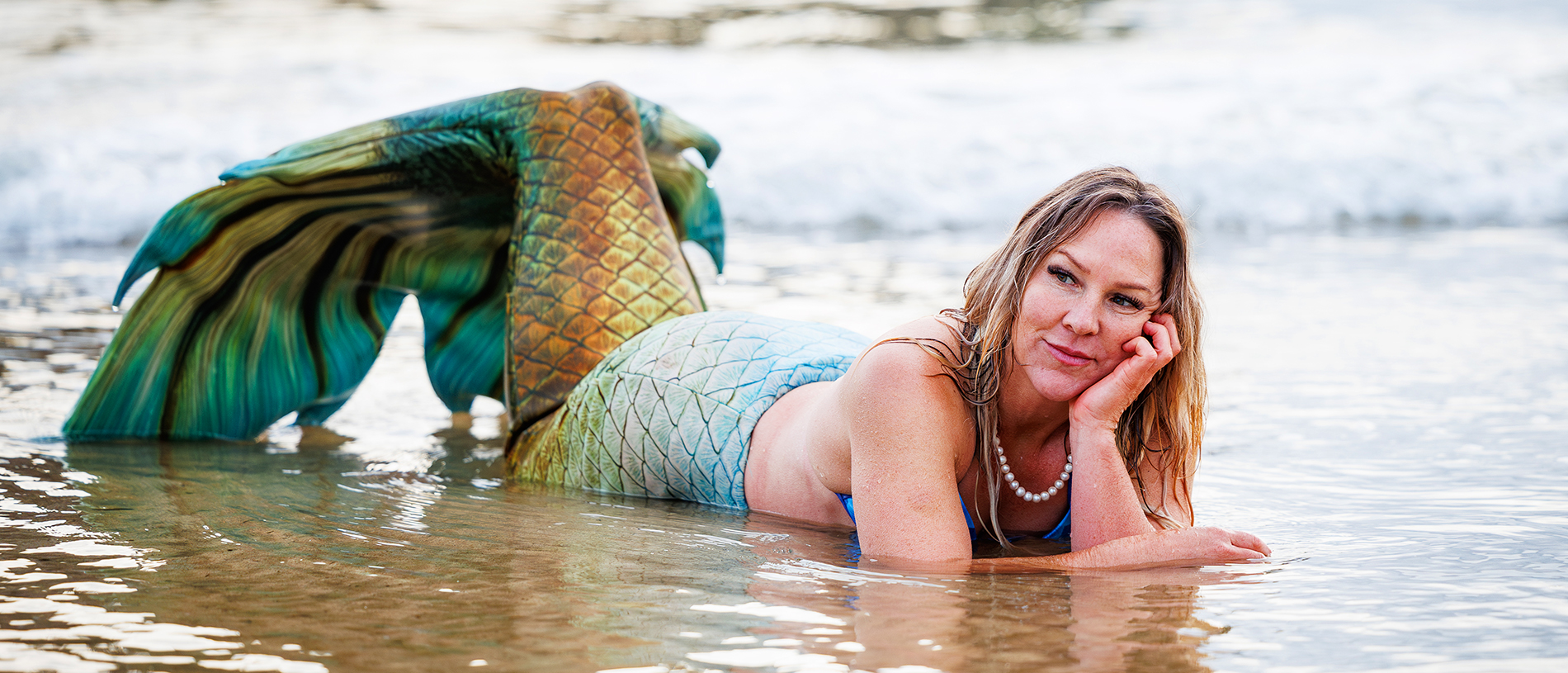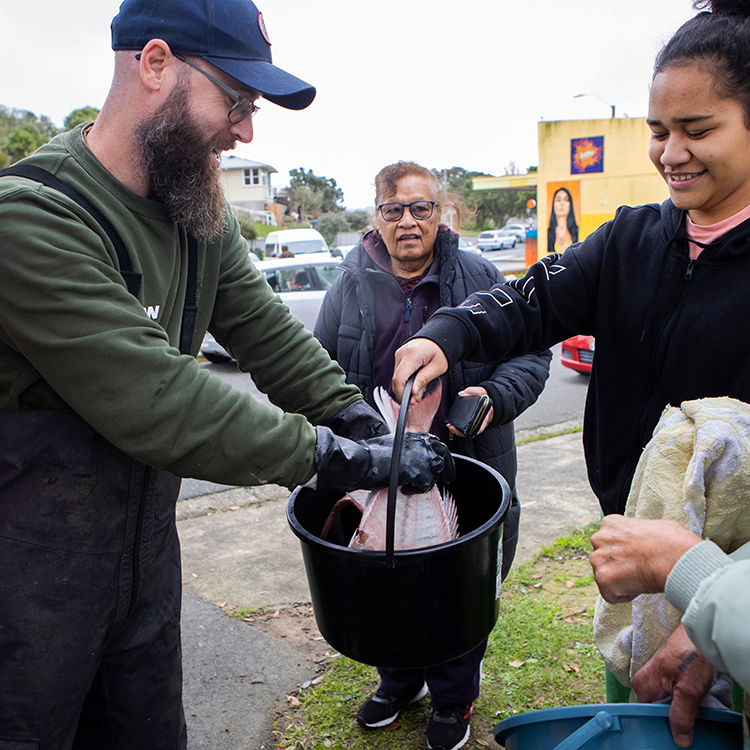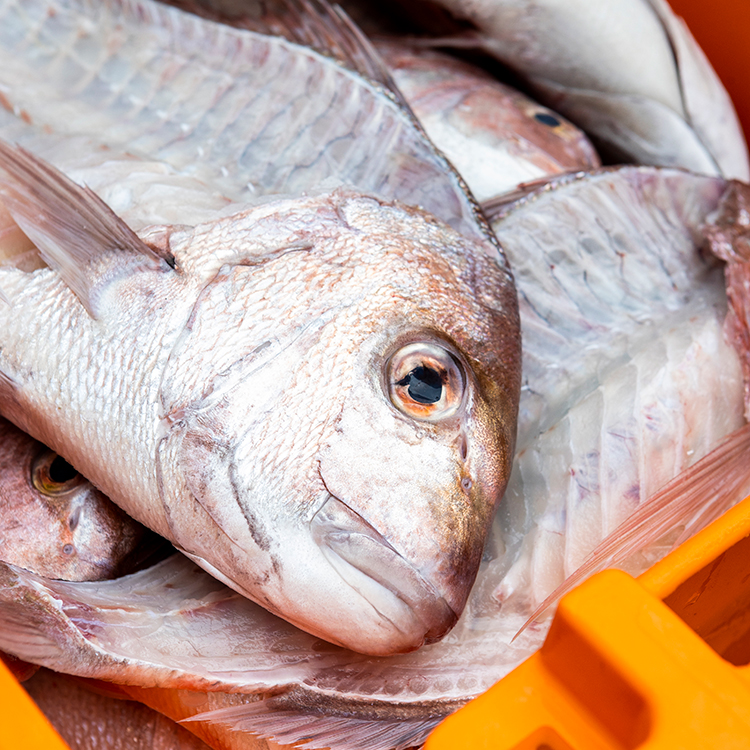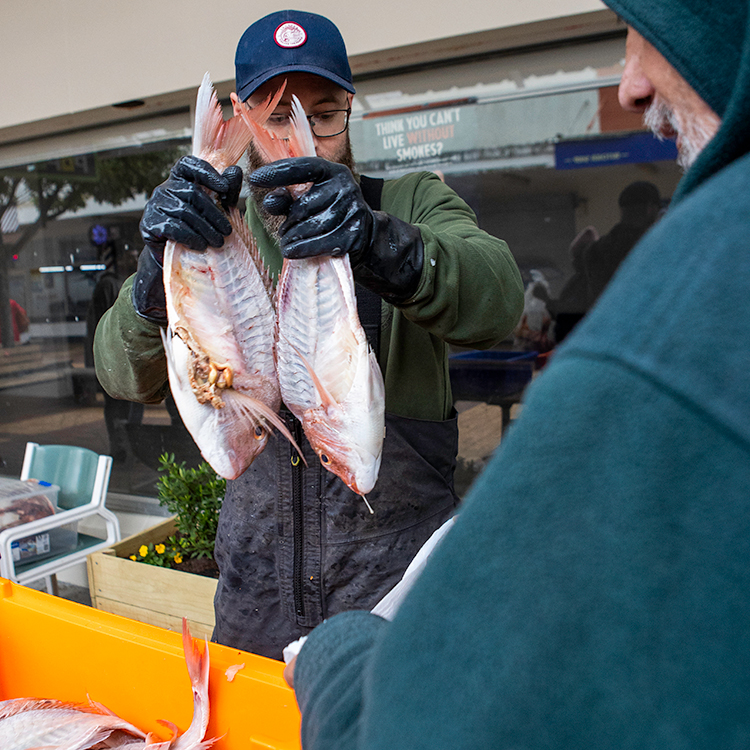
Fantasies fulfilled: mermaid diving
Professional mermaid Sacha Williamson shares her underwater adventures in Tutukākā, Northland.
Chris Jupp spends his Thursdays elbow deep in fresh fish parts that might otherwise be bound for the bin. He fills bags, buckets and boxes with hundreds of kilos of fish heads and frames to distribute to members of the Wellington community, who treasure this bounty.
He is operating a satellite of LegaSea’s The Kai Ika Project, initially established in Auckland in 2016 to address the interconnecting issues of food insecurity and marine sustainability in New Zealand.
Chris is project leader, but he’d rather be known as “just the delivery man.” He liaises with Wesley Community Action and Kōkiri Marae, which spread the word amongst the community. “We let them know that we’re going to be in a certain place, at a certain time, every Thursday, and people come with their buckets and their chilly bins, collect their fish and take it home.

“We make a real effort to get this kai onto family dinner tables that are most impacted by the current cost-of-living crisis. Many of the families who collect fish parts tell us that this has become their only source of meat-based protein.”
Joy is integral to The Kai Ika Project, he says. “Not only is there food on dinner tables, there’s joy in this celebration around those dinner tables. Fresh fish has become really expensive and if you don’t have the means to be able to go out and catch fish for yourself, it’s pretty difficult. So, people are loving it.”
Chris believes the current approach to fishing is short sighted. “In many ways, The Kai Ika project shouldn’t exist. It’s the ambulance at the bottom of the cliff; if we were using the whole of the fish, we could have the same amount of food on tables but take considerably less fish from our oceans.”

The mad-keen fisherman has been dropping a line in Wellington’s waters since childhood. He confesses he used to throw all the heads and frames in the bin. “Now, I enjoy getting some nice snapper heads on the barbecue and smoking them up, but I also make sure I’m using or gifting every part of the fish I catch.”
During summer, The Kai Ika project is supplied by both recreational and commercial fishers. “Where we can, we provide a filleting service at fishing club competitions, and that’s also an opportunity for us to generate funds to support the project. In Wellington, our commercial suppliers provide the bulk of our supply for the rest of the year.
“I’m constantly getting messages from recreational fishers, saying, ‘Hey, can you guys take these bits and share them on?’ Funnily enough though, it costs money to give fish away for free.”
To avoid becoming a bottleneck in the chain of supply and demand, Kai Ika is about to launch a Free Fish Heads app, aimed at providing a peer-to-peer sharing platform to connect fisher people with community members.

“Seeing community stakeholders, businesses, councils and random, passionate fisher folk coming together to look after and share this resource is incredible. The challenge is that there’s always more demand to meet. We’re constantly in catch-up mode, but what keeps us focused and moving forward is knowing that there’s plenty more fish heads out there and plenty more dinner tables where they would be gratefully received.”
Chris hopes to eventually see long term change, to the extent that fish heads and frames are as valued by commercial and recreational fishers as fillets are. “And that any family in New Zealand who wants to enjoy some fish can access that fish.”
This story is from the Spring 2024 issue of AA Directions Magazine.